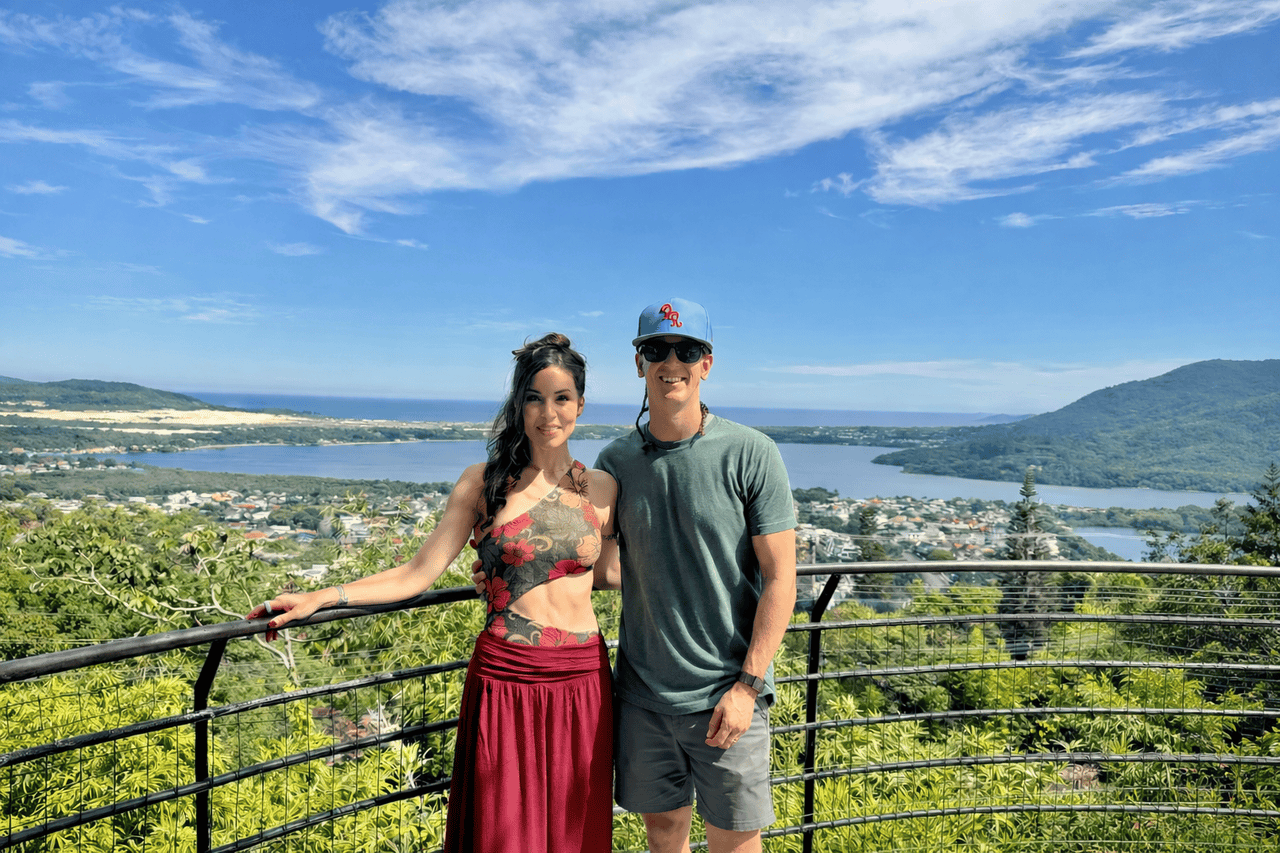It may have been The Endless Summer poster I had recently seen on a friend’s wall. Or the cold Wisconsin Winter starting to take hold over the Thanksgiving holiday with my family.
Regardless, I had an itch to finally learn to surf and a couple friends were renting a house in Costa Rica in January for a long weekend and jokingly asked if I wanted to go. I did but I wanted to learn to surf if I was going to go down there so I felt like I needed to get a week of surf school in before they arrived.

Unfortunately, I was a twenty-something that held a full-time executive level job that included being a member of a company’s Board of Directors. We were about to go into our busy sales season, which ran January through April. The dates I was looking at conflicted with our annual sales meeting that brought the whole company together in Ohio.
Not exactly prime time for a vacation.
I was already beyond excited for the trip, so I wasn’t going to let the big sales meeting deter me and needed to get creative about how I was going to make it happen.
So, how did I do it?
1. Gain Permission From Work
I wanted to go to Costa Rica to learn to surf, however, I was also fortunate, in that I worked for an international travel company. In my case, it was a little easier, I would experience a country I had never been before, on my own dime, that we also operated in.
This would in turn, allow me to better sell the trips to interested clients, even though it was outside of my India and Asia specialty. I know, you’re thinking, you worked for a travel company and get paid to travel. I have a friend that worked for Google and spent six months traveling all the way down South America to Antarctica. She came back to her job without any issues.
This is where you need to think about the company you work for and get creative. Does it have suppliers in a specific country like Peru that you could visit and meet in person, or you have an office in India to check in with and put a face to the names?
You don’t need to say the company should pay but doing a little work helps alleviate the ‘taking time away’ issue. The ability to be remote in today’s world also gives you the opportunity to create remote work pilot program opportunities. It can never hurt to ask your manager, HR, or whoever may be able to provide you the buy-in.
2. Set Expectations
Upon first requesting to take the vacation, I was met with a response I expected, “You can’t be away during the annual sales meeting!”
I was prepared to explain how I would be a participant with a little pre-planning. I worked with a colleague and prepared a presentation and documentation to help the staff understand changes within my division, and educate them on the need-to-know’s for the upcoming season. I arranged my beachfront accommodations to have a great internet connection, then each day set a schedule centered around my surfing lessons and the necessary meetings.
People knew when they could definitely get a hold of me if they had questions and if I needed to Skype into anything, I was available. I was also luckily coming off a great growth year in my division, which leads me to the next point.
3. Build Trust Proactively
I knew that by taking the first two weeks of the year off, I was going to have some challenges.
Thinking ahead and planning gave me the opportunity to get necessary projects in progress or completed before I even asked for the approval. Fortunately, I had the same territory for a couple years, so I began reaching out earlier than normal to schedule the first two weeks of my sales season.
This is evidence that I would return from learning to surf in Costa Rica ready to hit the ground running in New York with a fully booked calendar. My aim was to be at the same place everyone else would be after that company retreat week, if not further along, by being proactive with tasks and projects already completed.
4. Check In Regularly

To make sure you are not dropping the ball on anything, be prepared to check in with your manager at least once a day. Don’t just email to email.
A good way is to send a task list that you intend to complete each morning, making sure nothing new should be added, then also report your progress from the prior day. Keep in mind, my two weeks of surfing weren’t really counted as vacation since I ended up completing my normal share of work (and far more efficiently, I might add).
This was a way to strike a balance of being somewhere amazing, learning to surf, and still getting shit done.
5. Stay Under The Radar
The last point here is probably the most important to having this opportunity again in the future. Don’t make it a big deal that you are having a great time by opening your email replies with “The surf this morning was sick,” including beach sunset pictures, or even setting an out of office that replies are delayed while you are learning to surf in Costa Rica.
You may even want to lay off the social media if you’re connected with colleagues.
You are still supposed to be technically working and an hour or two delay on replies doesn’t require an out of office. You’ll earn enemies quickly, including the managers that approved your getaway. Keep it to yourself, and play it cool.
You don’t want people getting distracted that “Scott is off surfing in Tamarindo while we’re sitting in this endless sales meeting in Ohio.”
So how did that surfing trip go?

It was phenomenal!
Each day I would wake up early and have a quick breakfast on the beach outside my bungalow. I’d surf from about 7:30 to 9:30 in a lesson, then head back to do a couple hours of work. I'd find some Carne Asada for lunch somewhere, then head back for another couple of hours of work looking out at the rolling waves on the beach.
I’d grab the board and head out again around 4 or 4:30 for a quick sunset surf, finish the day with dinner and drinks, then tie up any loose ends on work before bed. I did that for a full seven-day, solo surf school program before my friends arrived, then met them at the amazing house and was able to surf alongside them. By no means was I a pro, but I could hold my own.
I know that not every company will allow for the opportunities like these, however, these tips should help you begin thinking about how you can take your own adventure, still keep your job, and hopefully not have to burn all of your vacation days.
If your company is not open to these opportunities, then maybe this post will help when you consider your next job. Once you do create an experience like this successfully, you’ll just need to rinse and repeat and remind your manager about how successful it was the last time.
Pura Vida and safe travels!
Read more from Scott on his website: http://scottponiewaz.com.




.avif)

























